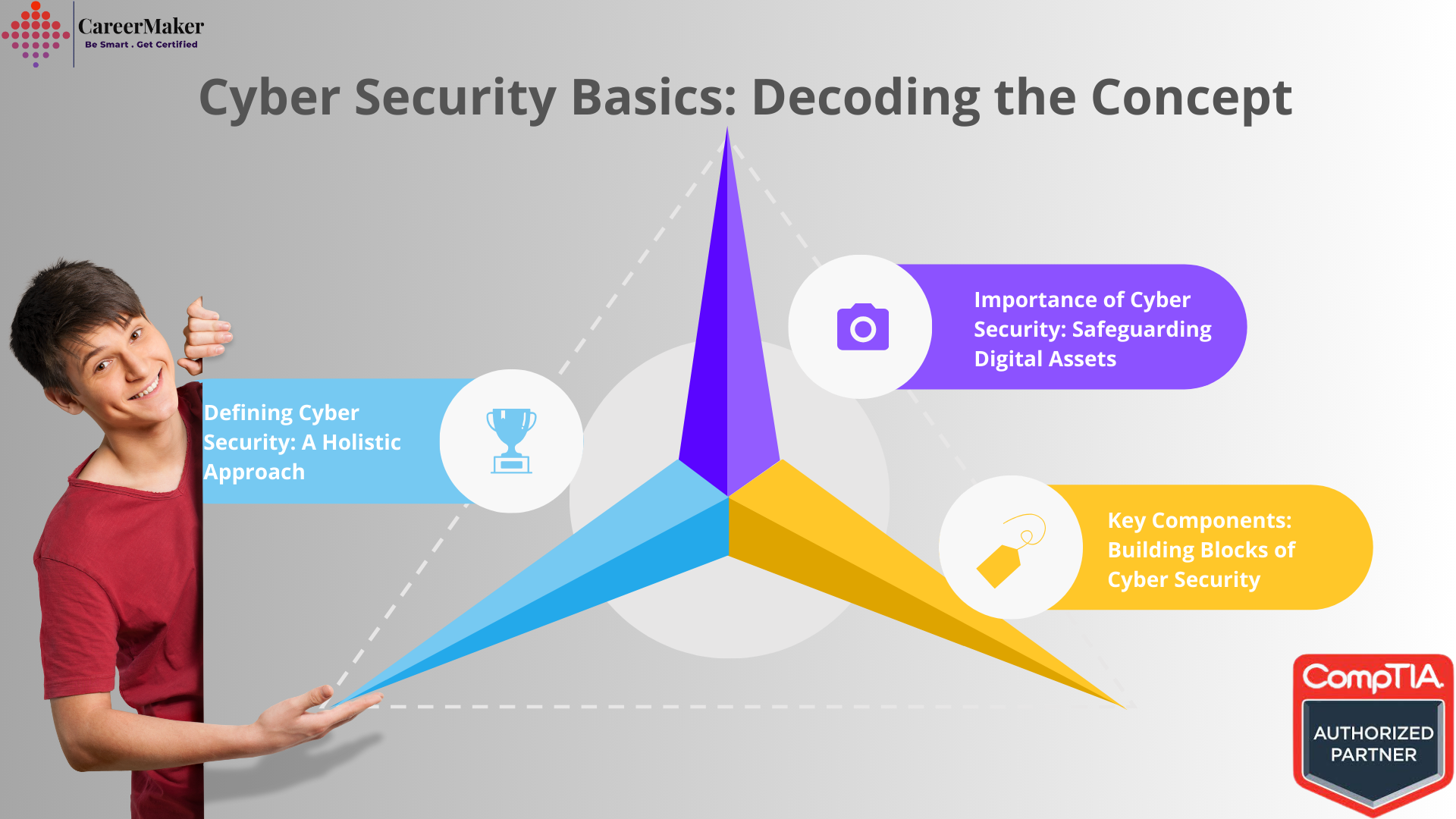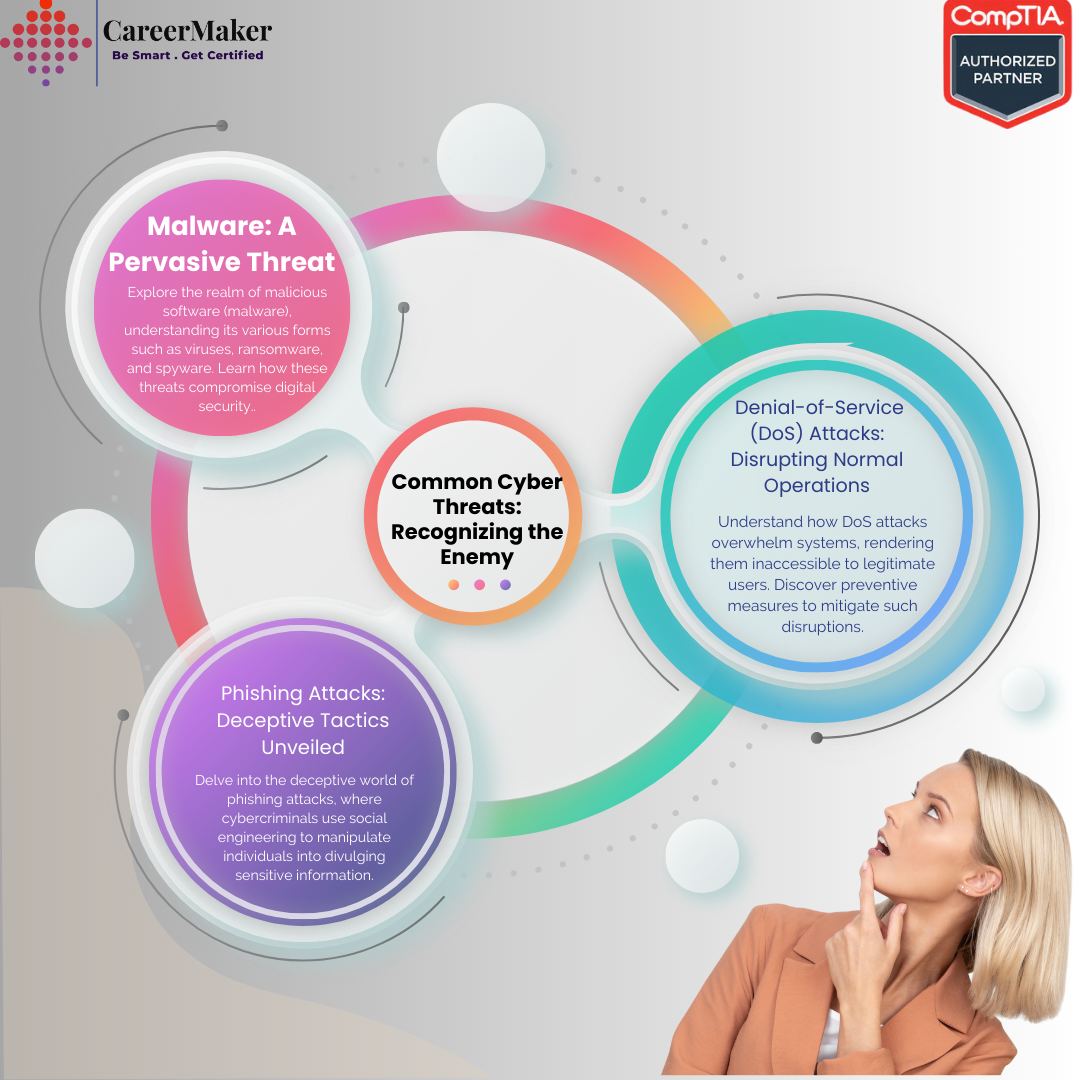What is cyber security: Understand Step by Step
Introduction
In an age dominated by technology, understanding “what is cyber security” is crucial. This comprehensive guide aims to demystify the concept, providing insights, expert advice, and a roadmap to fortifying your digital defenses.
Cyber Security Basics: Decoding the Concept

Explore the fundamental aspects to gain a clearer understanding of cyber security.
Defining Cyber Security: A Holistic Approach
Cyber security involves protecting computer systems, networks, and data from unauthorized access, attacks, and damage. It encompasses a range of practices, technologies, and measures to safeguard our digital existence.
Importance of Cyber Security: Safeguarding Digital Assets
In today’s interconnected world, cyber security is paramount. It ensures the confidentiality, integrity, and availability of data, shielding individuals, businesses, and governments from cyber threats.
Key Components: Building Blocks of Cyber Security
Unravel the key components, including network security, application security, and information security. Each plays a vital role in creating a robust cyber security framework.
Also Read:Best Cyber Security Certifications
Common Cyber Threats: Recognizing the Enemy

Identify potential cyber threats to better comprehend the need for robust security measures.
Malware: A Pervasive Threat
Explore the realm of malicious software (malware), understanding its various forms such as viruses, ransomware, and spyware. Learn how these threats compromise digital security.
Phishing Attacks: Deceptive Tactics Unveiled
Delve into the deceptive world of phishing attacks, where cybercriminals use social engineering to manipulate individuals into divulging sensitive information.
Denial-of-Service (DoS) Attacks: Disrupting Normal Operations
Understand how DoS attacks overwhelm systems, rendering them inaccessible to legitimate users. Discover preventive measures to mitigate such disruptions.
Securing Your Digital World: Proactive Measures

Equip yourself with practical tips to enhance your cyber security posture.
Strong Password Practices: The First Line of Defense
Learn the art of creating strong, unique passwords and employing multi-factor authentication to fortify your accounts against unauthorized access.
Regular Software Updates: Patching Vulnerabilities
Explore the importance of keeping software and applications up-to-date, minimizing the risk of exploitation through known vulnerabilities.
Firewalls and Antivirus Software: Creating Virtual Barriers
Understand how firewalls and antivirus software act as virtual guards, monitoring and preventing unauthorized access and malicious activities.
What is Cyber Security Career? Exploring Professional Avenues

Embark on a journey to comprehend the diverse career opportunities within the field of cyber security.
Roles and Responsibilities: Cyber Security Professionals Unveiled
Discover the various roles within cyber security, including ethical hackers, security analysts, and incident responders. Each role contributes uniquely to the cyber security ecosystem.
Educational Paths: Nurturing Cyber Security Skills
Explore educational routes, from specialized degrees to certifications like Certified Information Systems Security Professional (CISSP) and Certified Ethical Hacker (CEH).
Career Growth and Opportunities: The Sky’s the Limit
Understand the dynamic nature of the cyber security industry, with abundant opportunities for career growth and specialization.
Also Read:
How to Become a Cyber Security Analyst
Conclusion: Empowering Your Cyber Security Journey
Understanding “what is cyber security” is pivotal in today’s digital landscape. By grasping the basics, recognizing potential threats, and adopting proactive measures, you empower yourself to navigate the cyber world securely.
FAQs about Cyber Security
Is cyber security only important for businesses?
No, individuals, government entities, and businesses alike benefit from cyber security. Personal data protection is as critical as safeguarding corporate information.
How often should I update my passwords?
Regular password updates are advisable, ideally every three to six months, to enhance security.
Can a small business afford robust cyber security measures?
Yes, there are cost-effective cyber security solutions tailored for small businesses. Investing in basic security measures is crucial.
Are antivirus programs sufficient to protect against all cyber threats?
While antivirus programs provide essential protection, a comprehensive cyber security strategy involves multiple layers of defense, including firewalls and user education.
Can anyone pursue a career in cyber security, regardless of their background?
Absolutely! Cyber security welcomes individuals from diverse educational backgrounds. Certification programs provide accessible entry points for those passionate about the field.
What role does artificial intelligence play in cyber security?
AI is increasingly utilized in cyber security to identify and respond to threats in real-time, augmenting human efforts for more effective defense.